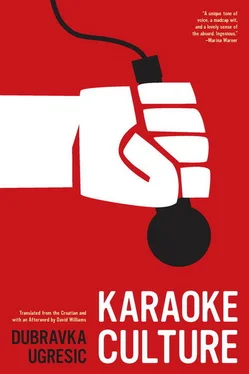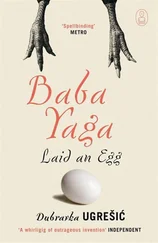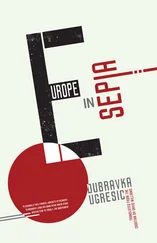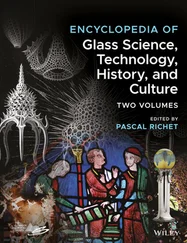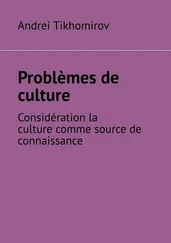Dubravka Ugresic - Karaoke Culture
Здесь есть возможность читать онлайн «Dubravka Ugresic - Karaoke Culture» весь текст электронной книги совершенно бесплатно (целиком полную версию без сокращений). В некоторых случаях можно слушать аудио, скачать через торрент в формате fb2 и присутствует краткое содержание. Год выпуска: 2011, Издательство: Open Letter, Жанр: Публицистика, на английском языке. Описание произведения, (предисловие) а так же отзывы посетителей доступны на портале библиотеки ЛибКат.
- Название:Karaoke Culture
- Автор:
- Издательство:Open Letter
- Жанр:
- Год:2011
- ISBN:нет данных
- Рейтинг книги:4 / 5. Голосов: 1
-
Избранное:Добавить в избранное
- Отзывы:
-
Ваша оценка:
- 80
- 1
- 2
- 3
- 4
- 5
Karaoke Culture: краткое содержание, описание и аннотация
Предлагаем к чтению аннотацию, описание, краткое содержание или предисловие (зависит от того, что написал сам автор книги «Karaoke Culture»). Если вы не нашли необходимую информацию о книге — напишите в комментариях, мы постараемся отыскать её.
Karaoke Culture — читать онлайн бесплатно полную книгу (весь текст) целиком
Ниже представлен текст книги, разбитый по страницам. Система сохранения места последней прочитанной страницы, позволяет с удобством читать онлайн бесплатно книгу «Karaoke Culture», без необходимости каждый раз заново искать на чём Вы остановились. Поставьте закладку, и сможете в любой момент перейти на страницу, на которой закончили чтение.
Интервал:
Закладка:
“I’ve created a place that looks like it was once inhabited. But it wasn’t,” said Kusturica in an interview. In another interview he says that he has created a mythical place in which the spirit of authorship will be reincarnated. Kusturica’s website is called Kustopedia and is “the online encyclopedia on the universe of Emir Kusturica.” He might not have dreamt up the name, but he surely approved it. Kusturica uses a hypermodern form (a fully-realized simulation game) and an antiquated authoritarian-utopian rhetoric (I inventeda village; I built a mythical place; the reincarnation of the spirit of authorship, the universeof Emir Kusturica, Kustopedia).
Opposites
Valentina Hasan’s is a textbook case in popular culture. Culture is a living, active process; it develops from the inside and can never be imposed from the outside or from on high. Valentina Hasan is both an active consumer of this culture and a potential participant. She is a representative of the millions of people all over the world who not only communicate via popular culture, but who also increasingly control it. Television is today dominated by “reality” TV (variants of Big Brother ), local and imported soap operas, and local and imported series (the majority being sit-coms). With transition cultures having adopted the infotainment model, real news and current affairs programming is very rare. Today untrained actresses not only act in soap operas, but also write and produce them, while memoirs and autobiographies are inevitably a by-product of the “celebrity business.” In Croatia an anonymous young man became famous for being the first man (at least in Croatia) to have his lips pumped with silicon. Today he is a celeb and hosts his own popular TV program. Even local models and porn stars have their own programs. The examples are simply too numerous to go into — and they are no longer the exception, they are the rule. The media — newspapers, television, the publishing industry, the Internet — live off these “automatic-for-the-people-pop-stars,” and these “people’s pop stars” live off the media, together shaping and controlling popular culture. As exemplified by Valentina Hasan, this culture is no longer confined within local borders. Transitional post-communist cultures no longer ape American and Western European formats. They are early adopters; they imitate, embrace, communicate, and participate, never missing a beat. Like Valentina Hasan, popular culture is ideology-free, an empty screen on which consumers and participants together locate and inscribe meaning. But Valentina Hasan is no Cinderella. Like the many Bulgarians who headed west in search of work following Bulgaria’s accession to the European Union, Valentina Hasan lives with her husband in Spain. Her unexpected popularity on Bulgarian Idol and the video clip that made its way around the world led to an appearance on Spanish television, where she impressed with her more than competent Spanish. As a consumer of popular culture, Valentina Hasan pushed all the right buttons: in the marketplace of popular culture everyone is welcome, everyone has the right to their five minutes of fame, and this five minutes of fame is a lottery — it all depends on the very second in which millions of people, themselves just like Valentina, choose their “star.” The first time, silicon pumped lips might do it, a second, poorly pronounced English, the third time it might be exceptional talent. Valentina owes her five minutes of fame to inadvertently breaking the rules (her mangled English), to the jury who appointed themselves linguistic authorities (everyone in the jury began their careers like Valentina), and, most of all, to the audience who recognized this. The carnivalization of imposed values and of authority has always been a driving force behind popular culture. Valentina, “the people’s princess,” inadvertently carnivalized a body of authority (a Bulgarian television jury), inadvertently knocked a “queen” (Mariah Carey, the queen of pop) from her pedestal, and then made one final gaff: like a modern Eliza Doolittle, she knocked the English language off its pedestal.
As opposed to Valentina Hasan, Emir Kusturica is not only a representative but also a champion of “high culture.” The Drvengrad project is very similar to computer simulation games such as SimCity (a “city building simulation game”); it’s as if Kusturica followed SimCity ’s promotional catchphrase—“Design, build and run the city of your dreams.” With its toys for little boys — helicopters, rangers’ jeeps, a railway park and old train — in its very realization Kusturica’s Drvengrad resembles SimCity . Kusturica, however, is not a player of emancipatory-empowering computer games. He’s a different kind of player, a transition mutant, a modern version of the communist state artist par excellence . In Serbia this position was long reserved for Dobrica Ćosić, who, known to his friends (including Kusturica) as the godfather , was in Milošević’s time briefly president of “rump Yugoslavia” (consisting of the republics of Serbia and Montenegro). Kusturica is a new, neoliberal godfather , a landowner and entrepreneur, who has bundled his entrepreneurship into a personal ideological mishmash that includes anti-globalization, anti-liberalism, Serbian Orthodoxy as new spirituality, environmentalism, and the elitism of art. Kusturica could only realize his utopia with the help of the Serbian political and “entrepreneurial” mafia. He didn’t have a choice; he built it in Serbia. The kindly hearted will intone that every state has a mafia, and this is true. But in Serbia — and the same goes for Croatia, Bosnia, and several other countries in transition — the mafia has a state. And that’s how and why Kusturica has his Drvengrad.
Post-communist cultural practice blossoms between these two poles, between “Valentina” and “Emir”; between the ever more exuberant and dominant pop culture on the one hand and cultural representatives on the other, who, although they don’t have their own Drvengrad, have heads buzzing with ideas that are similar to Kusturica’s. There are the legions of “academics,” covered in historical dust, who every now and then let out an epileptic kick in the hope of reinstating the canon. There are writers who are retouching their self-images in the hope of winning back the audiences they lost in the historical change. And there are writers who have figured out that the media is king, who successfully combine roles (as writers of newspaper columns and owners of newspapers, as publishers and owners of publishing houses, as TV personalities and TV show hosts, as bloggers and “twitterers”), having taken lessons from the media strategies of politicians and pop stars. For this reason we needn’t bat an eyelid when we see the writer T. T. appear on Russian television dressed up as Catherine the Great (cosplay!), her wig clumsily falling on her sweaty forehead. Nor should we be surprised to see the respected Russian writer L. P., in her twilight years (she’s over 70), dressed up like a cabaret singer, performing her sad Edith Piaf karaoke. Nor should we worry when other prominent Russian writers use musical accompaniment (usually drums!) to liven up their showbiz-like appearances. And the last thing to startle us should be the Croatian writer V. R. practicing cosplay on television, appearing dressed up as a nun, a “woman in mourning,” or a “beaten woman,” visually underscoring whatever she has written or said.
Within the general karaoke culture, post-communist culture also wants the right to a voice. And that’s why we really shouldn’t be surprised that — just like Valentina — the aforementioned L. P. wanted to finally have her time under the bright lights, a right which, hand on heart, she truly deserves. The old dame woke from a dream, and having cottoned on that times have changed, she chose well: she went for a — hmm—“unique” karaoke gesture.
Читать дальшеИнтервал:
Закладка:
Похожие книги на «Karaoke Culture»
Представляем Вашему вниманию похожие книги на «Karaoke Culture» списком для выбора. Мы отобрали схожую по названию и смыслу литературу в надежде предоставить читателям больше вариантов отыскать новые, интересные, ещё непрочитанные произведения.
Обсуждение, отзывы о книге «Karaoke Culture» и просто собственные мнения читателей. Оставьте ваши комментарии, напишите, что Вы думаете о произведении, его смысле или главных героях. Укажите что конкретно понравилось, а что нет, и почему Вы так считаете.
